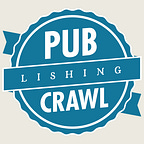This week JJ and Kelly continue their series on Author Career, this time tackling the question of QUALIFICATIONS. Do you need them to be a writer? (SPOILER: No.) They discuss the pros and cons of getting a degree in writing or literature, pursuing an MFA or another sort of certificate, and answer some listener-submitted questions. Also: is the Rock an Elinor or a Marianne?
Show Notes
The best writing teacher is the act of writing itself.
Do you need to major in English or Writing if you want to get into publishing or if you want to be a writer? No. HOWEVER, we think it's useful to take classes that require you to write academic papers because the skill of distilling your argument and clearly defending and providing evidence in support of your argument in a clear, logical, and persuasive manner is useful in nearly every aspect of your life.
JJ majored in English, but she majored in it because she liked it.
Kelly majored in Writing.
Critique Partners vs. Workshops in a classroom setting
Our episode on Critique Groups
Critique partners are usually self-selected, whereas workshops are assigned. Critique partners often share similar sensibilities, but workshops generally have a broader, more generalized perspective.
Workshops can be a taste of what it will be like once you are published in that you will be unable to defend your work. People will get facts incorrect, people will have a bias against your subject matter, and you will not be able to say anything. Once your book is out in the world, it belongs to the readers.
MFAs
Neither JJ nor Kelly attended an MFA, so their POV is necessarily limited and biased, so take their advice with an enormous grain of salt.
MFAs are fantastic for giving you time. You are given time to do nothing but write and learn, and as we said before, the best writing teacher is the act of writing itself.
HOWEVER: an MFA does not—we repeat—does not—guarantee a book deal. So weighing the cost of that education vs. material gain is something you should take into consideration.
MFAs are actually useful if you want to teach writing at a higher level, but publishing is entirely different.
Vermont College of Fine Arts MFA in Writing for Children and Young Adults
Hamline University MFA in Writing for Children and Young Adults
Other classes (not accredited programs)
Mediabistro, Gotham Writers Workshop, The Loft Literary Center
Classes on craft are often more useful after you've written a novel
"Good Will Hunting it"
Reading broadly and writing are truly the best teachers.
Reading broadly across all genres and age categories teaches you that the elements of a good story are universal.
Craft books are as much inspirational as much as they instructive
Revision for Pantsers (Reverse Outlining)
Books Discussed/What We're Reading
The Tiger's Wife by Tea Obrecht
Salt by Mark Kurlansky
Empire of Shadows: The Epic Story of Yellowstone by George Black
Bird by Bird by Anne Lamott
On Writing by Stephen King
An Ember in the Ashes and A Torch Against the Night by Sabaa Tahir
Corduroy by Don Freeman
Sense & Sensibility by Jane Austen
Bad Feminist by Roxane Gay
I Want My Hat Back by Jon Klassen
Fangirl by Rainbow Rowell
A Court of Mist and Fury by Sarah J. Maas
Prep by Curtis Sittenfeld
The Age of Miracles by Karen Thompson Walker
Room by Emma Donaghue
What You're Asking
What's readers advisory would you give Dwayne "The Rock" Johnson? —Renata
Well, more than a reading list to give the Rock, both Kelly and JJ would prefer to have the Rock read books to them. Like Corduroy, Sense and Sensibility, Bad Feminist, and I Want My Hat Back. Also, both Kelly and JJ are in agreement that the Rock is totally an Elinor from Sense and Sensibility.
Any tips on how to keep chugging along on revisions without losing steam/sight of the story, voice, prose, etc.? —Janella
Whoo boy. Well, JJ says it helps to have a deadline! A danger for writers is often overthinking our work, and overthinking leads to doubt. It is good to question yourself, but doubt is something else. Generally, JJ reverse outlines her draft, and in the process of doing so, she develops a good idea of what the "point" of her novel is and it helps keep her on track.
I'm struggling with if my WIP is YA or adult. Any suggestions on how to decide as it drives some aspects? —Tina
Honestly, YA vs. adult is mostly a marketing issue. In terms of content and theme, anything goes in YA, the same as adult. It's generally how the subject matter is executed/treated that differentiates age category, as well as perspective. Adult protagonists (despite actual age) have already developed a sense of self by the time the story begins, whereas in YA, the protagonist is developing a sense of self: hence the "coming-of-age" aspect of YA. This "developing" narrative often lends itself to a closer, more intimate POV and emotional immediacy is a hallmark in young adult.
What You're Saying
Very informative! ★★★★★ Wishiwasinitaly I like podcasts that are discussions and not just one person talking into the void, and JJ and Kelly are great. They're fun and they have tons of industry experience. The topics they choose are extremely helpful for the yet-to-be published author!
We're really glad you find our discussions entertaining and informative! This is generally what our conversations are like even when the microphones aren't on, so we thought we might as share that with you!
Off Menu Recommendations
That's all for this week! Next week we'll be continuing our Author Career series by talking about THE BUSINESS OF BEING AN AUTHOR. Stay tuned!




